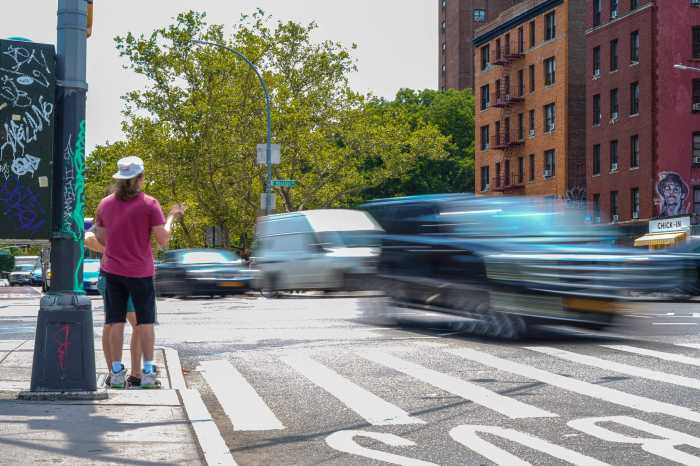By Bill Parry
Three months after Mayor Bill de Blasio endorsed the findings of the blue-ribbon Lippman Commission report on closing the city’s most notorious jail, he presented “Smaller, Safer, Fairer: A Roadmap to Closing Rikers Island” last week. In the plan are 18 “concrete steps” the city is taking to shutter the facility and replace it with a smaller network of jails in each borough.
The plan includes $30 million over the next three years to accelerate the reduction of the jail population, while renovating the current facilities.
“New York City is at the forefront, both for ending mass incarceration and reducing crime. We have the smallest rate of incarceration of any big city in the country and crime continues to drop,” de Blasio said. “Closing Rikers Island is a continuation of this important work. We are building a correctional system that is smaller, safer and fairer — one in which jails are safe and humane.”
To ensure effective implementation of the roadmap, the city is launching a Justice Implementation Task Force that will coordinate with groups inside and outside of government to focus on safely reducing the jail population and achieving a smaller jail system.
City Councilman Donovan Richards (D-Laurelton), the co-chairman of the Progressive Caucus, agreed.
“The horror stories about Rikers Island are endless and heartbreaking, which is why creating a smart, well-thought out plan with all stakeholders at the table is one of the most crucial policies we can work on as a city,” he said. “Tough decisions will have to be made and decades of neglect will not be solved overnight. With every major leader in the city on board, there is no better time than now to address the vast amount of issues that have plagued our city’s jail system.”
City Councilman Rory Lancman (D-Hillcrest), the chairman of the Committee on Courts and Legal Services, is not so sure.
“The ‘plan’ the mayor released to close Rikers Island is a political document whose numbers don’t add up on its face. It certainly doesn’t set us on a path to closing Rikers within 10 years,” Lancman said. “The mayor’s ‘plan’ barely expands supervised release, abdicates responsibility for the siting of the new jails, and is overly reliant for keeping people out of jail on an updated ‘flight risk’ assessment tool that currently does not even exist. Let there be no doubt: New York City can close Rikers Island in less than 10 years if we have the leadership and political will required to do so.”
Glenn Martin, the founder and president of Just LeadershipUSA, who organized a march last September through Astoria demanding that Rikers be closed, has his doubts as well. Martin, whose organization is dedicated to cutting down the nation’s jail population, was a member of the Lippman Commission.
“While the mayor spends his time assembling a task force, New Yorkers at Rikers — mostly black and brown — continue to suffer in deplorable conditions and face routine human rights abuses,” Martin said. “After dismissing the report from the yearlong work of the expert Lippman Commission as a ‘bunch of volunteers making recommendations,’ the mayor will need to prove his authenticity by sharing a plan that is equally thoughtful and reflective of the community’s input. Make no mistake: Any plan that does not incorporate the voices and experiences of people most harmed by Rikers will be dead on arrival.”
Reach reporter Bill Parry by e-mail at bparr


































